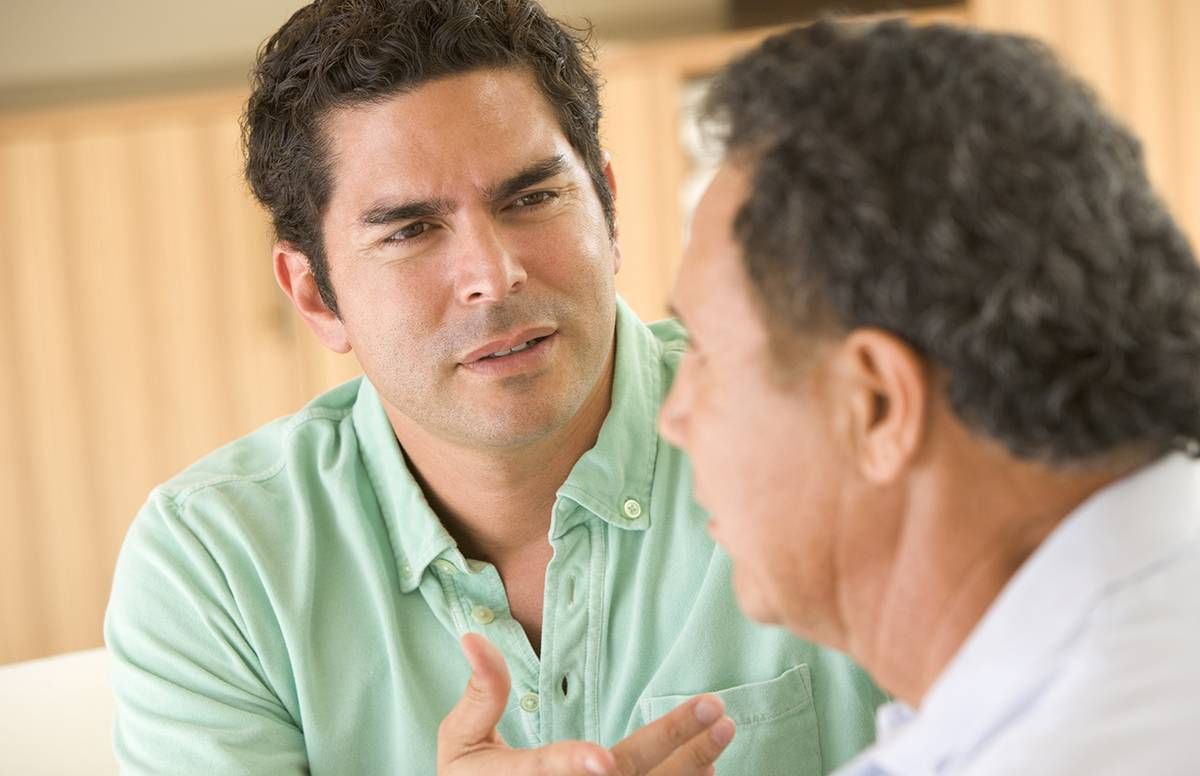Caregiving With Siblings: Your Questions Answered
How to handle conflict while caring for aging parents
Next Avenue recently asked readers to tell us the questions they’d like answered about getting along with family members while caregiving. We’re now back with two experts’ views on the top two questions; both concerned caregiving with siblings. They were:

- How do you deal with siblings who don’t participate with the real work involved in caring for an elderly parent?
- How do you handle conflict among siblings of aging parents when some live out of town and others nearby?
Caregiving With Siblings: It's Not Easy
Even in the best of circumstances, caring for your aging parents is a tough job. And whether you are the primary caregiver or an adult child who is trying to contribute from afar, there will likely be disagreements, tension and even anger between you and your siblings.
Conflicts over caregiving are “extremely common,” said Barry J. Jacobs, a clinical psychologist in suburban Philadelphia and author of AARP’s Meditations for Caregivers. But, he noted, there are ways — often, though not always — to head them off and keep family relationships intact.
Don’t Expect Equality
First, examine your expectations.
“There are some people who believe that everyone should pitch in equally, since the parent belongs equally to all of them,” Jacobs said. “Honestly, that sounds good, but that's rarely the case.”
The caregiving duties almost always fall primarily on one or two siblings’ shoulders, Jacobs said. There is often a gender bias; in fact, research shows that the most common primary caregiver is the youngest daughter, with the oldest daughter the second most common, he said. The parents’ preference also may come into play.
Rather than expecting or demanding caregiving equality, assume that each of your siblings can do something — even if it’s not as much as you would like, Jacobs said.
When a Sibling Lives Elsewhere
The degree to which adult children assist in their parents’ care may depend on their proximity.
“The people who are closest to the scene are just going to end up being more available to do some of the hands-on work — driving, picking up medications — just because they're there,” Jacobs said.
If they live farther away, adult children can still participate, he said. Unfortunately, some may try to “direct” the show from a distance, “which drives the people on the ground crazy,” he said. “Not all help is helpful.”
If you are the distant sibling, Jacobs suggested, let the primary caregiver define what is most needed. Ask what you can do to make a difference.
The answer may be, “Take a week's vacation and give us respite.” Or “send money.” Or, “I'm going to send you all the insurance forms and you call the insurance company and work this out.”
No One Is a Mind Reader
Denise Brown, founder of Caregiving.com, an online resource for caregivers, says a common complaint she hears from primary caregivers is they believe their siblings should intuitively know what to do to help.
“I think, however, that we can’t expect people to read our minds,” Brown said. “We may look like we’ve got it all taken care of, that it’s all under control. People don’t know it’s not all under control until we say, ‘Hey, I need a break.’”
And if they say "No," look for other sources of assistance through your community, or a meal service or some paid help.
Knowing When to Let It Go
Brown has a personal, as well as a professional, connection to the issue. She and her siblings care for their aging parents near Chicago.
One of her sisters pulled out of caregiving duties after a disagreement caused a rift in the family. At first, that was a source of resentment and frustration for Brown. Then she decided to focus on the things that were within her control.
“I do what I can so that I follow what my values are, which is to be gracious and compassionate and composed,” she said. We may want to change other people, but “that’s not a battle we’re going to win.”
When Your Sibling Is Out of Touch
If your brother or sister isn’t pulling his or her weight, try engaging in a conversation about it, Jacobs suggested.
“One problem that makes it difficult for siblings to agree [on responsibilities] is there's not basic consensus about what the problem is — what the parent's condition is, and what the caregiving needs are,” he said.
That may be particularly hard when a parent has dementia.
“There’s an incredible amount of denial that goes on,” he said. Certain siblings don't want to accept that their parent has a degenerative, terminal illness. But by refusing to see dementia for what it is, “they are causing more duress on the siblings who are in the know.”
Jacobs emphasized the importance of detailed communication so all siblings are in the know.
This process, he noted, should be “as formalized as possible” — with group texts or emails and regular meetings, either in person or via conference call.
“By formalizing this process, we underscore how important it is and put everybody on their best behavior in talking about it with one another,” Jacobs said. Those who are not the primary caregivers should see the discharge summaries from the hospital and the notes from the doctors’ visits so they have the information they need.
Acknowledge Each Others’ Strengths
Finally, recognize that all the siblings can help in some way. It might be sitting at the hospital bedside while the primary caregiver tracks down the doctor. Or researching options for assisted living. Or taking the parent out for lunch.
“Bring the lawnmower. Mow the front lawn. Bring a casserole,” Jacobs said. “Sometimes [primary caregivers] want help in specific ways, and siblings are not willing to make that contribution. But they’ll make a smaller contribution. And we have to be gracious enough to accept that and say, ‘OK.’”


